The views expressed in our content reflect individual perspectives and do not represent the authoritative views of the Baha'i Faith.
If they will but see it, because of their complementary qualities, the two racial groups [Black & White] have great spiritual need, one of the other. — Alain Locke, 1933.
We arrived ten minutes late. The memorial service had just started in the Congressional Cemetery chapel, located on the 35-acre historic burial ground on Capitol Hill in Washington, DC. I parked on the narrow cobblestone road, stones glistening from the fresh rain, teardrops from the heavens above.
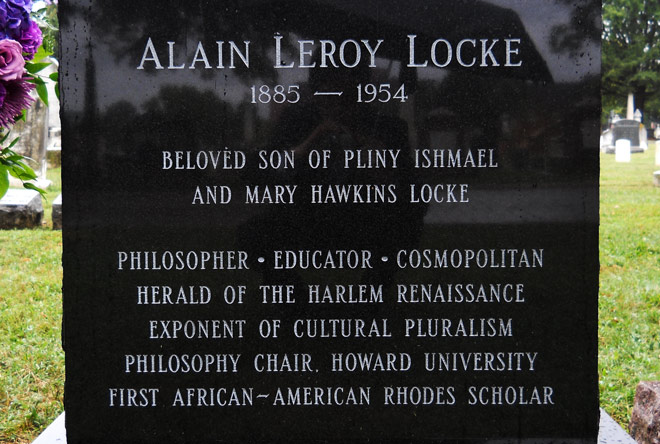
Alain Locke’s headstone (front) (Photo by Taraz Buck) Event: Alain Locke Interment, Congressional Cemetery, Washington DC, September 13, 2014. Hosted by the American Association of Rhodes Scholars. This event was primarily organized by George Keys, Esquire (eighth African American Rhodes Scholar)
I could hear singing, human yet angelic, lilting and wafting out of the chapel. The occasion was the internment of the cremated remains of Alain Locke (1885–1954), whom I’ve previously referred to as “Black Plato,” taking that title from a 1968 speech by the late, great Dr. Martin Luther King Jr., who compared the African American philosophers W. E. B. Du Bois and Alain Locke to Aristotle and Plato. Locke embraced the Baha’i Faith in 1918, the very same year that he earned his PhD in philosophy from Harvard University.
After dropping my dear wife, Nahzy, and two sons, Takur and Taraz, off at the chapel, I parked my car. Behind me, a congenial African American Baha’i gentleman offered me the other side of his umbrella, as we walked under the drizzling rain, completely at ease with each other as Baha’i brothers, even though we were otherwise utter strangers. We knew that history was being made this day, with the ashes of that great American philosopher, Alain Locke, finally being laid to rest in a befitting way—with monumental honor.
Inside the chapel I found myself standing next to Professor Leonard Harris, the leading scholar on Alain Locke. (Harris wrote the Foreword to my book, Alain Locke: Faith and Philosophy, for which I am ever grateful.) Dr. Harris quietly smiled and embraced me, saying, in an almost inaudible voice, that I hadn’t aged since we last met at Howard University, where the Association of American Rhodes Scholars had held its Centenary event, commemorating Locke’s election as the first African American Rhodes Scholar in 1907. (Charisma and charm make such compliments welcome, even if they do stretch the truth a little.)
Attorney George Keys, former Rhodes scholar, emceed the occasion, which he organized practically singlehandedly. Mr. Keys is the eighth African American Rhodes Scholar, and so he feels a special connection to Locke. Keys introduced other Rhodes Scholars (one who was also African American), who spoke in turn about the impact of Locke’s important work.
Then came Kit Bigelow, who represented the National Spiritual Assembly of the Baha’is of the United States. In her speech, she highlighted Locke’s service as a Baha’i, and read excerpts from his writings.
Far more than a retrospective appreciation, Ms. Bigelow’s speech addressed Locke’s contemporary relevance. She said Locke’s words not only have the depth of history behind them, but the breadth of his cosmopolitan vision of unity between the races, so needed today:
There are the facts of a man’s life, those details that provide the context and outline, that help us to place him in our sense of history.
Then, there are, in some instances, his words, the true currency of his thoughts and his legacy.
Alain Locke left us his words, etched in history. They are today as relevant, as illuminating, as perspicacious, perhaps even more than when he first uttered or wrote them. Would he offer us still the same advice and insights?
Throughout her speech, Ms. Bigelow quoted Alain Locke:
Just as world-mindedness must dominate and remold nation-mindedness, so we must transform eventually race-mindedness into human-mindedness.
Right from the opening of these very words, I immediately recognized the final statement by Locke that Ms. Bigelow quoted four times, with the following being her final quote::
Eventually, however, just as world-mindedness must dominate and remold nation-mindedness, so we must transform eventually race-mindedness into human-mindedness.
This powerful quote comes from Stretching Our Social Mind, the commencement address at Hampton Institute, in Hampton, Virginia, which Locke delivered on August 18, 1944. (One of several unpublished speeches and essays which I found in the course of my research on Locke, and then published in the 2005 and 2008 issues of World Order magazine, which can be downloaded at the end of this article.)
In this landmark address, Alain Locke echoed the core teachings of the Baha’i Faith:
We work and pray for the unity of mankind, that all the races of the earth may become one race, all the countries one country, and that all hearts may beat as one heart, working together for perfect unity and brotherhood. – Abdu’l-Baha, Paris Talks, p. 99.
Watch the full Internment Ceremony below:

This video was provided by Vahid Brignoni.
Read Alain Locke’s Hampton Institute commencement address Stretching Our Social Mind.
Read US Baha’i National Spiritual Assembly representative Kit Bigelow’s speech.
You may also enjoy reading Christopher Buck’s other articles on Alain Locke:
Black Plato on World Citizenship, Black Plato’s Advice to Black Graduates


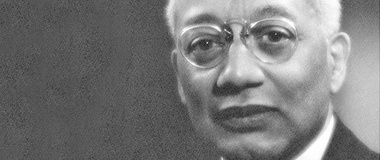
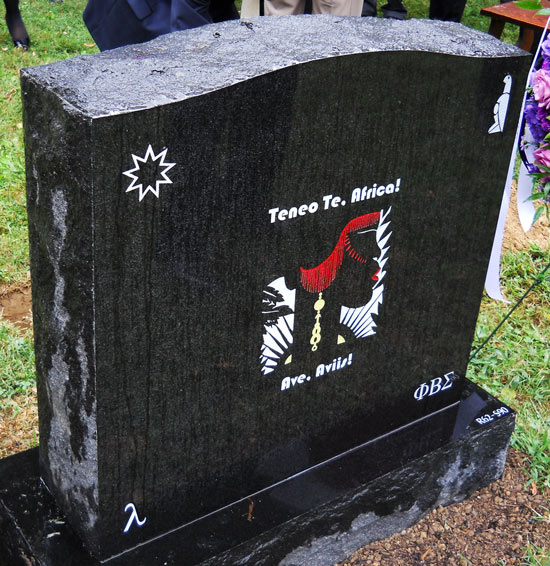


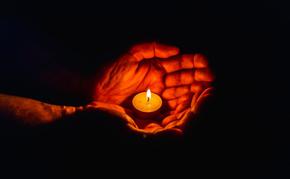
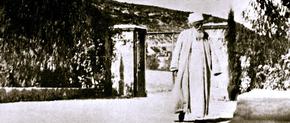
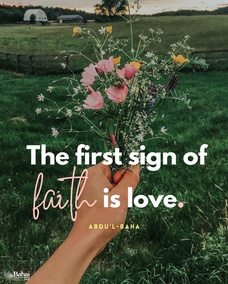
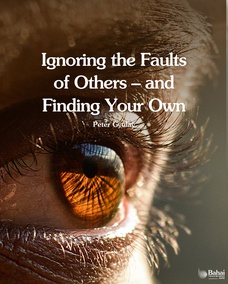
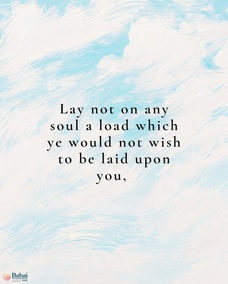



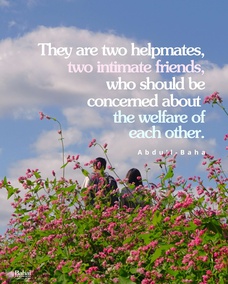
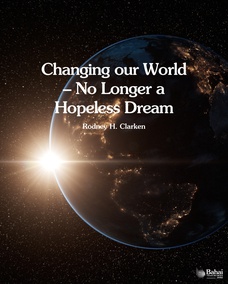

Comments
Sign in or create an account
Continue with Googleor